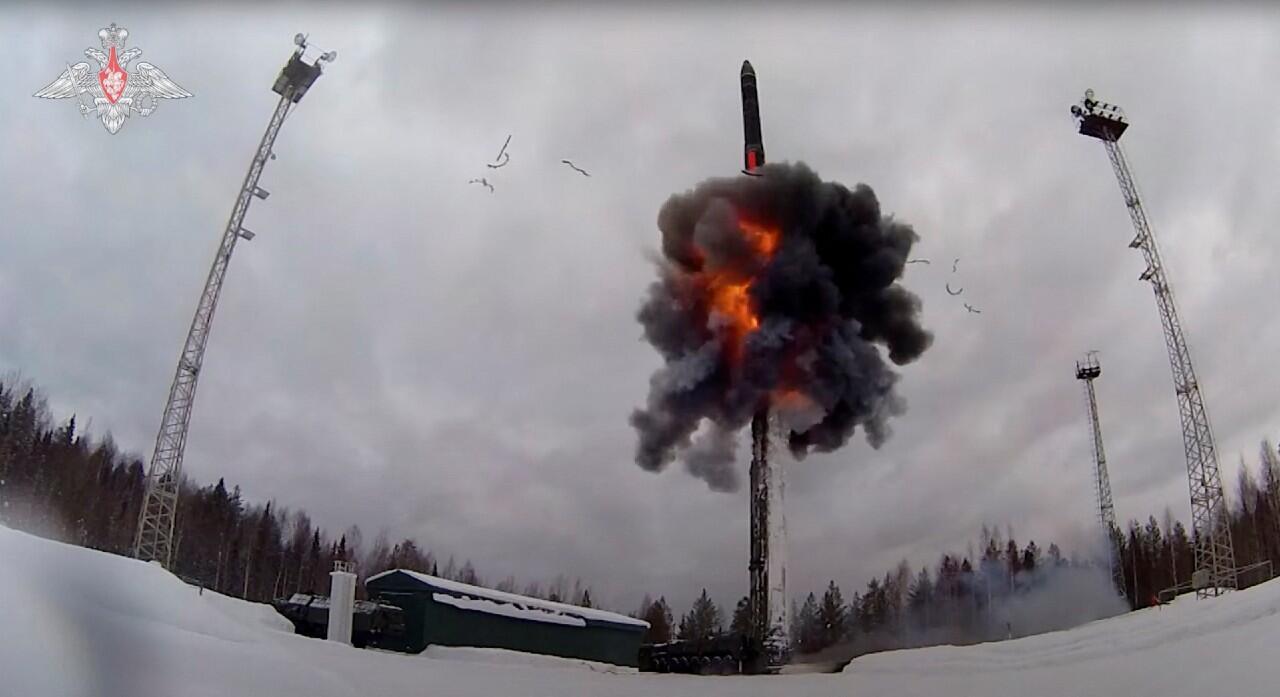Russian President Vladimir Putin delivered a speech on September 21 in which he made several announcements about the war in Ukraine. The Kremlin leader announced the mobilization of 300,000 reservists, threatened the West with nuclear weapons and backed the annexation referendums to Moscow in the Ukrainian regions scheduled for this weekend. kyiv points to “signs of weakness” behind the Kremlin’s decisions and the European Union warned of “consequences”.
In the face of setbacks, new strategies. Russian President Vladimir Putin seeks to relaunch the war in Ukraine, after the advances and the recovery of territories of the local Army, when the conflict approaches seven months.
In a televised speech, the Kremlin leader announced the “partial mobilization” of troops. A total of 300,000 reservists will be called up, around 1% of their capacity as Defense Minister Sergei Shoigu specified shortly after, who said that there are around 25 million people who meet this criteria, but only a part of those will be mobilized. they have remarkable combat experience.
“Military service will apply only to citizens who are in the reserves, especially those who have served in the Armed Forces, have certain military professions and relevant experience,” Putin said.
According to the president, the measure is in direct response to the dangers posed by the West, which “wants to destroy our country” and try to “turn the people of Ukraine into cannon fodder.”
“Our troops are not only facing the neo-Nazi formations in Ukraine, but the entire military machine of the West. That is why it is considered necessary to make a decision that is fully adapted to the threats we are facing,” he said.
But this is Russia’s first mobilization since World War II and comes amid heavy battlefield losses for its troops. In recent weeks, the forces of the attacked nation have recaptured territories in southern Ukraine and the entire northeastern province of Kharkiv. Thousands of Moscow soldiers fled, leaving behind important military vehicles and equipment.
Kremlin spokesman Dmitry Peskov, asked what had changed since he and other officials earlier signaled no mobilization was planned, argued that Moscow is effectively fighting a potential combined NATO because alliance members they have been supplying weapons to kyiv.
The announcement also comes after the increase in deaths of Moscow military. On Wednesday, Shoigu reported that Russia has so far lost 5,937 men in the “special military operation.” Figures for Russian soldiers are not regularly updated by the Russian government and are always well below Western estimates.
The Pentagon estimates that Russia has suffered between 70,000 and 80,000 casualties.
Ukrainian presidential adviser Mykhailo Podolyak called Putin’s decision to send more troops a “predictable step” that highlights the war is not going according to the Kremlin’s plan.
“Partial mobilization of troops”, a counterproductive measure?
Although Putin’s Army is larger than Ukraine’s, Putin’s tactic has a strong element of risk: it could backfire, making the war he ordered on February 24 unpopular at home and damaging his own reputation, as well as exposing Russia’s underlying military shortcomings.
Russian political analyst Dmitry Oreshkin called Putin’s announcement smack of “an act of desperation” and said Russians will resist the mobilization through “passive sabotage.”
With the mobilization of reservists, the conflict on Ukrainian soil will now enter the home of many Russian families.
“People will evade this mobilization in every possible way, they will bribe their way out of this mobilization, they will leave the country,” said Oreshkin, who described the move as “a big personal blow to Russian citizens, who until recently took part in hostilities. with pleasure, sitting on their sofas, watching television. And now the war has come to his home.”
Shortly after the president’s speech, Russian media reported a sharp rise in demand for overseas plane tickets, amid an apparent scramble to get out of the country despite exorbitant flight prices.

The head of the Duma Defense Committee, Andrei Kartapolov, asserted that there would be no additional restrictions for reservists to leave the country based on this mobilization, according to local press reports. Kartapolov added that he wanted to “calm down” people about the mobilization.
In the military field, there are those who point out that the mobilization is unlikely to bring consequences on the battlefield, due to the lack of training facilities and equipment.
British Defense Secretary Ben Wallace echoed that assessment, describing Putin’s move as “an admission that his invasion is failing.”
Sergii Nikiforov, a spokesman for Ukrainian President Volodymyr Zelensky, called the move a “great tragedy” for the Russian people. He argued that conscripts sent to the front lines in Ukraine would face a fate similar to that of ill-prepared Russian troops beaten back in an attempt to take kyiv in the early days of the conflict.
Putin threatens with his nuclear arsenal
In his speech, which was much shorter than previous ones on the war in the neighboring country, Putin accused the West of engaging in “nuclear blackmail”. The president cited alleged “statements by some high-ranking representatives of the main NATO states on the possibility of using nuclear weapons of mass destruction against Russia.”
Putin warned that his nation has a nuclear arsenal even larger than that of the member countries of the US-led political-military alliance, which he would not hesitate to use. “I’m not lying,” he said.
“To those who are allowed such statements regarding Russia, I want to remind you that our country also has various means of destruction, and by separate and more modern components than those of NATO countries and when the territorial integrity of our country is threatened, To protect Russia and our people, we will certainly use all means at our disposal,” the Kremlin leader remarked.

Faced with the threats, Lithuanian Defense Minister Arvydas Anušauskas said that his country must put its rapid reaction force on high alert, since the mobilization will also take place on its border with the Russian enclave of Kaliningrad.
For his part, the Foreign Minister of Latvia, Edgars Rinkēvičs, reported that his government will not offer refuge to any Russian fleeing the mobilization of troops from Moscow.
Russian President announces his support for referendums to annex Ukrainian territories
Awarding Ukrainian towns and cities through annexation referendums is another tactic with which the Kremlin hopes to achieve its occupation goals.
In his long-awaited speech, Vladimir Putin also indicated that his government would give its full support to the consultations announced for this weekend in Lugansk, Donetsk, in eastern Ukraine, and Kherson and Zaporizhia, in the south, to join the Russian territory .
“We do not have the moral right to hand over people close to us to executioners to be torn to pieces. We cannot fail to respond to their sincere desire to determine their own lives (…) They do not want to live under the yoke of the neo-Nazi regime,” Putin said, justifying his decision.

His remarks came after Moscow-backed separatists in those regions announced the referendums, scheduled for September 23-27, on Tuesday, September 20.
A move that would set the stage for Moscow to escalate the war after Ukraine’s successes.
Before Putin’s announcements, the European Union (EU) warned that there will be “consequences on our part.”
“The EU Member States have already held a coordination meeting in which they discussed in terms of an EU response to the continuation of the war of aggression against Ukraine (…) This includes all aspects of aggression, crimes that have been committed, the referendums, the discoveries of mass burial sites,” European Commission spokesman Peter Stano told a news conference.
Putin launches new efforts to regain lost momentum in the conflict with his former ally in the former Soviet Union, while facing reluctance within his own country. The opposition movement Vesna called for protests in different cities on Wednesday.
With Reuters, AP and EFE













Add Comment